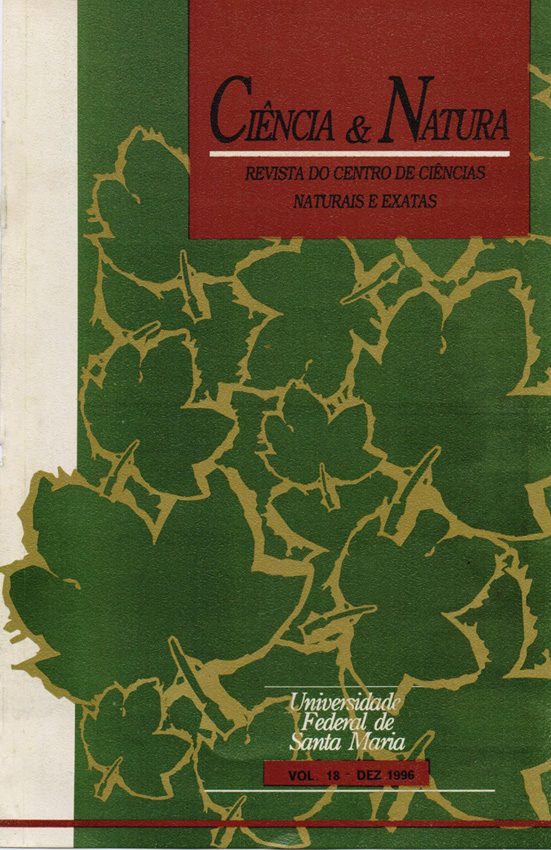Aplicação de técnicas tradicionais e de séries temporais no controle estatístico da qualidade
DOI:
https://doi.org/10.5902/2179460X26540Palavras-chave:
Mudanças na média do processo, Controle de Qualidade, Shewhart, Somas Acumuladas, Alisamento Exponencial.Resumo
Neste trabalho é apresentado o Controle Estatístico de Qualidade da linha de produção de três máquinas da montadora de tratores MAXION, unidade de Canoas, RS, pelo Procedimento Clássico de Shewhart, bem como pelas técnicas alternativas: Soma Acumuladas (CUSUM) e Modelo de Alisamento Exponencial. Observa-se que o procedimento de Shewhart pode ser utilizado na detecção de grandes mudanças na média do processo e o Método das Somas Acumuladas é mais eficiente na detecção de pequenas mudanças na média do processo.Downloads
Referências
ÄSTROM, K.J. (1970). Introduction to stochastic control. Mathematics in science and engeneering series. 70. Academic Press.
HUNTER, J. S. (1986). The exponentially weighted moving average. Journal of Quality Technology 18, p. 203-210.
JOHNSON, N. L. (1961). A sim pie theoretical approach to cumulative sum control chart. Journal of the American Statistical Association, 56, p. 835-840.
KIRKENDALL, N. J. (1989). The relationship between Certain Kalman Filter
Models and Exponential Smoothing Models. Quality and reability.
MAcGREGOR, J. F. (1972). Topics in the control of linear processes subject to stochastic disturbances. Ph.D. dissertation, University of Wisconsin - Madison.
MONTGOMERY, D. C. (1968). Introduction to statistical Quality Control. Wiley, New York.
MONTGOMERY, D. C. & JOHNSON, L. A. (1976). Forecasting and time series analysis. New York, McGraw-Hill.
RADHARAMANAN, R.; GALELLI, D. T. & PERES, L. L. (1994). Sensitivity analysis on the CUSUM method Amsterdan, Elsevier, International Journal of Production Economics, v. 33, p. 89 - 95.
REYNOLDS, M. R. Jr; AMIM, R. W. & ARNOLD, J. C. (1990). CUSUM chart wich variable sampling intervals. Technometrics, vol 32, p. 371 - 384.
SACCUCCI, M. S. & LUCAS, J. M. (1990). Average run lengths for exponnencially weighted moving average control schemes using the Markov chain approach. Jornal of Quality Technology, vol. 22, p. 154 - 162.
SHEWHART, W. A. (1931). Economic control of Quality of manufactured product. New York, D. Van Nostrand.
SWEET, A. (1986). Control charts using compled exponencially weighted moving averages. 11E Transaction, March, 26 – 33.
Downloads
Publicado
Como Citar
Edição
Seção
Licença
Para acessar a DECLARAÇÃO DE ORIGINALIDADE E EXCLUSIVIDADE E CESSÃO DE DIREITOS AUTORAIS clique aqui.
Diretrizes Éticas para Publicação de Revistas
A revista Ciência e Natura está empenhada em garantir a ética na publicação e na qualidade dos artigos.
A conformidade com padrões de comportamento ético é, portanto, esperada de todas as partes envolvidas: Autores, Editores e Revisores.
Em particular,
Autores: Os Autores devem apresentar uma discussão objetiva sobre a importância do trabalho de pesquisa, bem como detalhes e referências suficientes para permitir que outros reproduzam as experiências. Declarações fraudulentas ou intencionalmente incorretas constituem comportamento antiético e são inaceitáveis. Artigos de Revisão também devem ser objetivos, abrangentes e relatos precisos do estado da arte. Os Autores devem assegurar que seu trabalho é uma obra totalmente original, e se o trabalho e / ou palavras de outros têm sido utilizadas, isso tem sido devidamente reconhecido. O plágio em todas as suas formas constitui um comportamento publicitário não ético e é inaceitável. Submeter o mesmo manuscrito a mais de um jornal simultaneamente constitui um comportamento publicitário não ético e é inaceitável. Os Autores não devem submeter artigos que descrevam essencialmente a mesma pesquisa a mais de uma revista. O Autor correspondente deve garantir que haja um consenso total de todos os Co-autores na aprovação da versão final do artigo e sua submissão para publicação.
Editores: Os Editores devem avaliar manuscritos exclusivamente com base no seu mérito acadêmico. Um Editor não deve usar informações não publicadas na própria pesquisa do Editor sem o consentimento expresso por escrito do Autor. Os Editores devem tomar medidas de resposta razoável quando tiverem sido apresentadas queixas éticas relativas a um manuscrito submetido ou publicado.
Revisores: Todos os manuscritos recebidos para revisão devem ser tratados como documentos confidenciais. As informações ou ideias privilegiadas obtidas através da análise por pares devem ser mantidas confidenciais e não utilizadas para vantagens pessoais. As revisões devem ser conduzidas objetivamente e as observações devem ser formuladas claramente com argumentos de apoio, de modo que os Autores possam usá-los para melhorar o artigo. Qualquer Revisor selecionado que se sinta desqualificado para rever a pesquisa relatada em um manuscrito ou sabe que sua rápida revisão será impossível deve notificar o Editor e desculpar-se do processo de revisão. Os Revisores não devem considerar manuscritos nos quais tenham conflitos de interesse resultantes de relacionamentos ou conexões competitivas, colaborativas ou outras conexões com qualquer dos autores, empresas ou instituições conectadas aos documentos.






